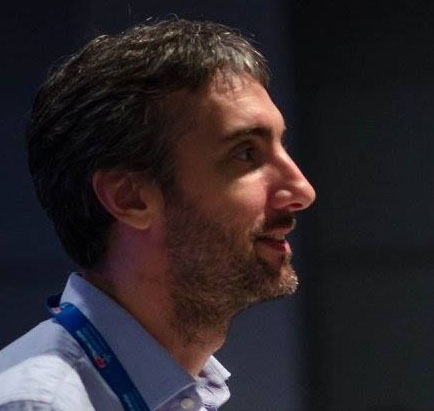 What route has your career taken to get you where you are today?
What route has your career taken to get you where you are today?
My career pathway started on a fairly standard scientific academic route; completing a BSc in Neuroscience at Sheffield University and a PhD in Glial cell biology in spinal cord injury from King’s College, London, followed by a short period as a post-doc at Birmingham University researching dementia. I discovered an interest in teaching fairly early on in my career, demonstrating for practicals and giving small group tutorials at King’s and then Birmingham. I further developed my teaching at Birmingham completing an accredited teaching qualification that allowed me to gain, what was then, associate membership of the HEA. After finishing my post-doc I moved into education more permanently, gaining a lecturer post in biology at Loughborough college. I consider this period almost as an apprenticeship in education. Teaching GCSE’s, A-levels, BTEC, Foundation and Access to HE courses I gained a lot of experience in education and learning theories. I also started working as an associate lecturer for the Open University during this time, a position that has given me vast experience of online and distance teaching techniques. It was during my time at Loughborough that I gained my second teaching qualification – Professional Graduate Diploma in Teaching in the Lifelong Learning Sector (PGDTLLS). After four years at Loughborough College….and one OFSTED visit….I thought it was about time for a change and wondered about a return to HE. I saw the job advert for my current role in the medical school at Newcastle advertised over Christmas 2012, quickly put an application together (having noticed the advert the day before application deadline) and got an interview in February 2013. Luckily I got the role and started in June 2013 once the college academic year had finished.
What do you find most challenging about working in HE learning and teaching?
For me I think it is the number of students. Working in the FE sector teaching groups of between 15-25 on a daily basis allowed me to get to know and understand the students and thus tailor my teaching to more adequately meet the needs of those students. Every student is an individual that learns in their own unique way. In HE students are more anonymous because of the large numbers and it is difficult to teach in a way that is broad enough to meet all of their learning needs. This is why teaching students the skills to learn themselves is probably more important than teaching the content itself.
What’s the best thing you’ve been involved in since you started working with Newcastle University?
The best thing I’ve been involved in so far is probably the most unexpected thing that has happened to me at Newcastle to date. Towards the end of 2015 I received an offer to go to our NUMed campus in January 2016 to set-up the Foundation Certificate in Biological and Biomedical Science. My past experience of working in FE and teaching at foundation level was catching up with me!
Heading out there at such short notice was tricky, seeing I’d just made an offer to buy a house! As it happened I just managed to complete the purchase and move in a week before locking everything up and moving out again and heading off to Malaysia for what became a five month placement. It was great to have the freedom to plan and prepare a new curriculum for a new course in a new country, meeting new and different staff and students along the way. I enjoyed the challenge of living in a different culture, but also the opportunity it gave me both academically and personally. As well as having the chance to travel to and explore different parts of south-east Asia we did manage to get the foundation programme up and running, building a great team of teaching staff for the opening cohort of 45 students from across Malaysia.
What’s the wisest piece of advice you’ve received from a mentor or colleague?
Keep a note/journal of everything I have done/achieved in my current role. It’s amazing how many things you forget you have done and having a record makes it a lot easier to prepare for PDR meetings or promotion applications.
What’s your top educational research interest
Being a neuroscientist, neuroeducation is of particular interest. This relatively new and interesting field of applying neuroscientific knowledge to develop new, evidence based, teaching and learning tools could have a great impact on the way we approach teaching in the future. Utilising knowledge and understanding of the way the brain learns could be particularly useful in developing ideas and methods to aid student’s own study skills techniques.
If you could have dinner with 3 famous people from history who would they be?
Charles Darwin – I’m a Darwinist so it would be interesting to discuss the development of the theory of evolution, and the voyage of the Beagle.
Caratacus – (Chief of the Catuvellauni, a pre-roman British tribe, who fought the Roman invaders for many years before being captured and paraded in Rome). I like my history and the Roman invasion of Britain is particularly fascinating. They say history is written by the victors so it would be great to hear the story of the Roman invasion from the other side.
Brian Clough – As a Nottingham Forest football supporter there can be no other option!
Dr Paul Hubbard, School of Medical Education
